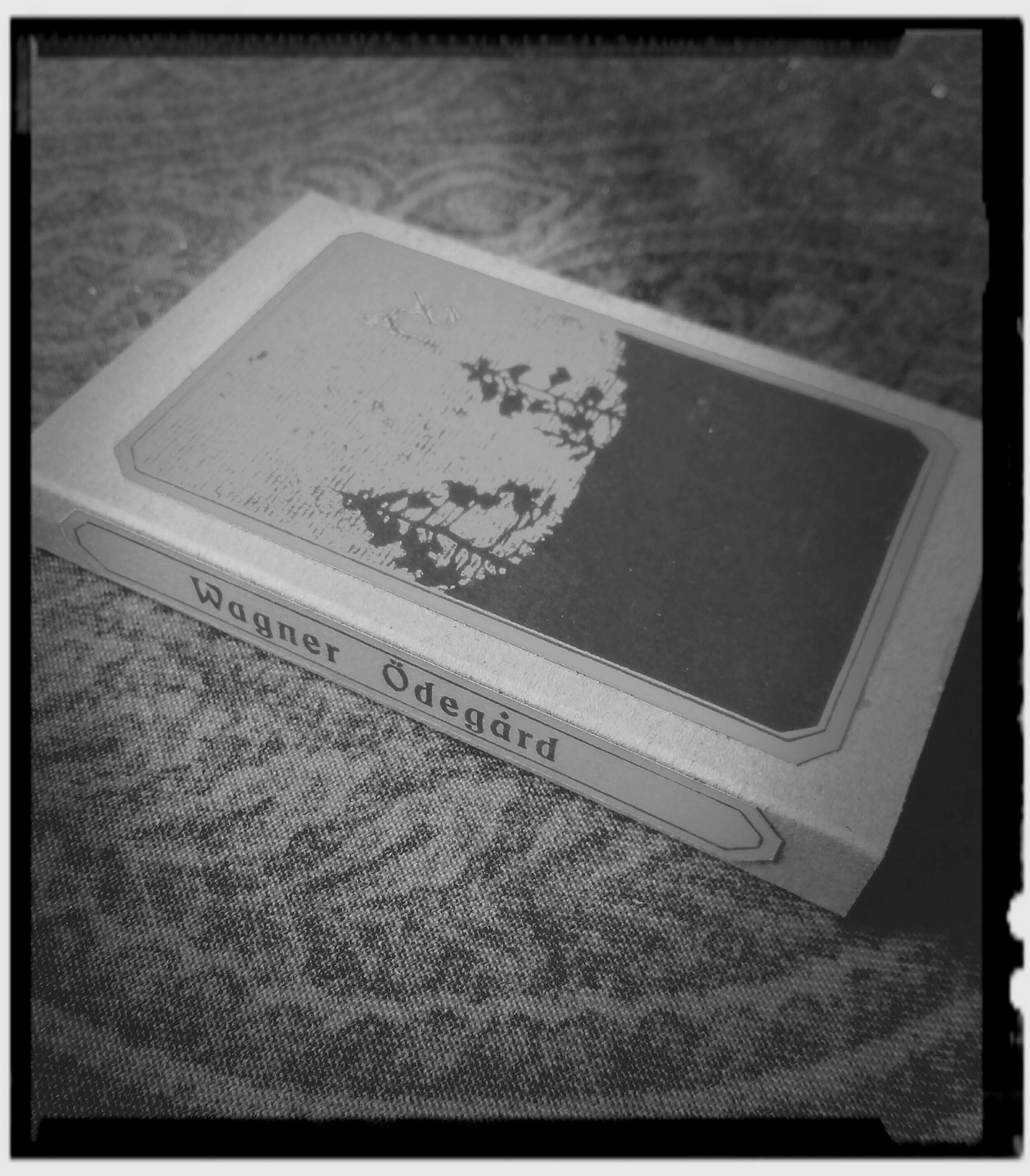Wagner Ödegård Interview
Under the psycho-active name Brugmanziah, the creator behind Wagner Ödegård has littered both the digital and physical worlds with a body of highly interesting musical projects. Sometimes hysterically intense, like Wulkanaz, and sometimes meditative and enchanting, like Dughpa, but always performed with a significant voice that shines through the raw and organic soundscapes. A voice that clearly articulates the artistic vision in a quite unusual way. Hinsides sought out the source of all this unrestrained creativity in an attempt to solve the riddle that this name has become.
Wagner Ödegård; that´s a highly imaginative name which holds that important quality of a hook. Once it´s placed itself in your mind it wont leave without force and you can´t help yourself to wonder how it got stuck and if your associations were intended by its originator? So what does the name represent to you? Is there some kind of image that you want to project with it and shall it be perceived as an alter ego?
- It sounds gloomy. It sounded right back then. I can still relate to it. If I remember correctly, Wagner was from Sarcófago’s Antichrist and not Richard Wagner. The name Ødegaard is derived from an old kin of mine in Norway. Many believe it’s from the Arckanum song ”Øþegarðr”, but it’s not.
Boogie-Woogie with Mr Empty Farm!
If I´m not mistaken, you´re the creator and composer behind Wulkanaz as well? How do you separate those projects from each other? Is it something in the essence of each projects that they do not share with the other, and if so, do you think that this diversity will remain sustained over time?
- I am the sole creator behind Wulkanaz. Since the latest album ”Wulkanaz” was released, I started out creating it’s successor (”Om domedag...”) but Daniel did not have time to rehearse. So I ended up playing all the instruments myself again. It felt uncertain to call it a new Wulkanaz album. So instead of creating a new project, I released it under the Ödegård name. So it’s not that seperated anymore.
As stated before, the name of this project moves your imagination to different places, and the same goes for the song titles. Some are written in contemporary Swedish while others looks as if they belong to some kind of long lost medieval language. Almost as if they were made up or derived from a state of delirium. I guess this notion is intentional and that there actually is a etymological context there to be reviled if searched for? Tell us what there is to know about the litteral side of W.Ö. Is it an intuitive playground without any grammatical or historical boundaries involved or are there hours of serious studies in medieval grammar behind?
- The lyrics have never been in modern or medieval Swedish. It came with classic ancient Swedish and young ancient Swedish in Tomhet (His previous Black-Metal band-Red). In Wulkanaz it started off with Proto-Germanic, then later with Gothic and lastly young ancient Swedish again. I understand that it can be seen as made up language sometimes. Often due to some of the abbreviations in ancient Swedish, or the use of v or w instead of U and also the strange syntax in classic ancient Swedish. Like thz or mz for instance, which is shortned for þe and mæþ. It is correct to write so. I have friends and contacts that helps me out with the grammar sometimes and yes, it takes a while to write these lyrics, but I am damn proud of them. They means a lot to me.
Fwlkommen
Skylto sik i telning ok riiss.
Hälder vp j siin sarla wärsta hugh.
Som aff thetta forscrefne drap.
Rees op aff dödha om löghadaghin.
Sunnodaghin la een ok sof.
At the skuldo til helgha koma.
Det gafwo honum marghe loff.
Lotum saman koma alt vart hoof.
Lyric taken from the “Om undergång och de tretton Järtekn” LP
(Klaxon Records 2019)
How about musical mentors? What has been crucial for how W.Ö sound and how important is the search for originality to you? Is it something that you strive to achieve?
- I have been recording on tape since day one. All sorts of machines have been used though the years. Also wire-recorder on some parts. To get that primitive feel and gnarly filth. I have nothing against digital recording procedure, but I am quite confident when it comes to analog sound. You can’t simulate the real deal. And how many times I’ve heard people talk trash about geezers like me, that plug-in programs can simulate my reel-to-reel machine so there is no need to hassle with tapes and actuall saturation when you just can fiddle a bit with a digital impulse with the same results. It’s ridiculous. I am not elite in any way, but certain and maybe a bit stubborn when it comes to sound and recording. Music that I’m inspired of vary a lot. I could say The Journeymen (1963), Affinity (1970), Popol Vuh (1979), Helloween (1987), Morbid Saint (1990).
- Then it might sound a bit arrogant, to say it’s easy to be original. Just listen to what new music has to offer. Especially from the black metal fields. Like how Panphage put it in his statement in ”Storm” and what he thinks of black metal;
”...Thank you for being a never ending source of inspiration
to do everything that you don’t.”
That’s about it.
What kinds of instruments do you use while recording and how do you proceed from writing the material to the final product? Looking at all the music you´ve released over quite a short period of time makes the impression of that you do not lack nor time or inspiration? How do you manage to find the needed creative space and how do you maintain your inspiration? What obstacles are most prominent in your life in order to be as productive?
- Except from guitars and drums, I have violin, cither, pump organ, accordion and some flutes and synths.
“Ur Törnedjupen” Hibiskofon 2016
- The process of recording can sometimes begin with a riff stored on cassette. Or I just pick up the old broom and start hitting it. Often at night. I lived alone in a remote house for a long time. I had drums and everything ready. Could play whenever I felt to. That would explain why it has been so much creativity. As I took care of the drumming myself late 2008, I thought that I had no boundaries. I could easily do it myself. Now, ten years after, and more so, I feel the drums are the obstacle. An instrument that I don’t have the best connection with. I really hate playing drums and I am, for playing it now and then for ten years, quite bad at it. When Daniel joined in, I did not play drums for about three years.
Now I live somewhere else and have no easy access to drums, nor can I play guitar anytime I want, like before. Damn neighbours and nearby scums. I have to travel some miles away to a rehearsal place to get a few hours of mayhem.
You´ve just read an excerpt from a longer interview with Wagner Ödegård made by Hinsides Magazine. The conversation as a whole are soon to be published on paper in the first issue of this Magazine together with a lot of other exclusive content.
Pre-Orders of the limited (200ex) edition are being made here:




